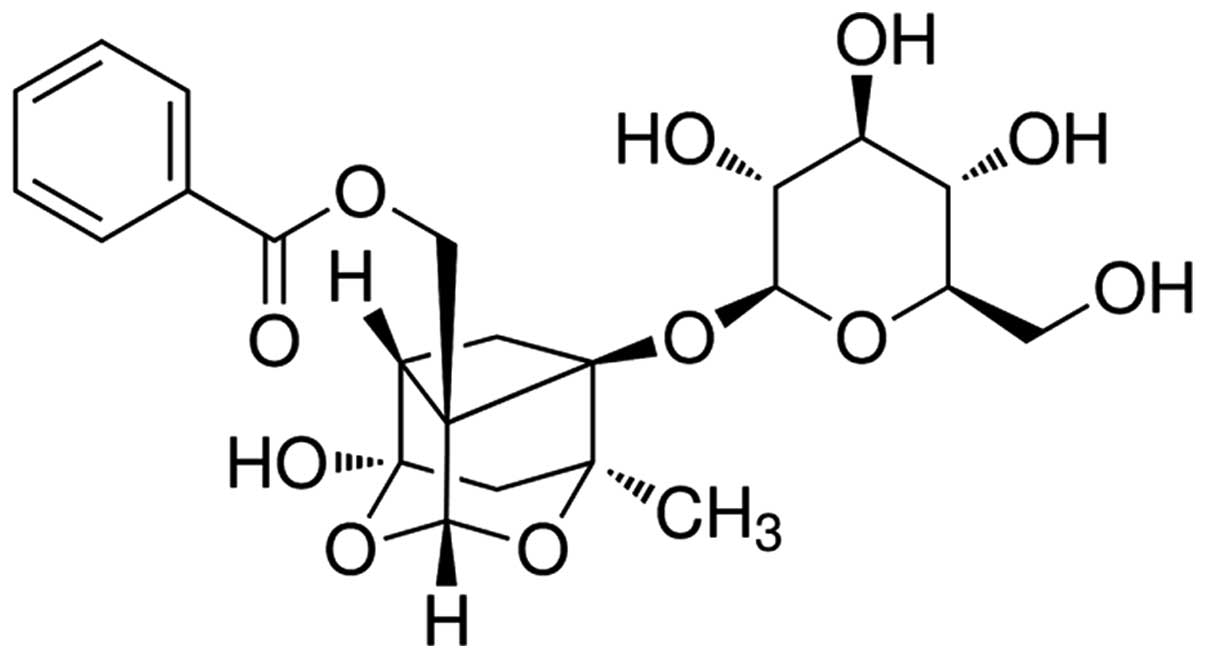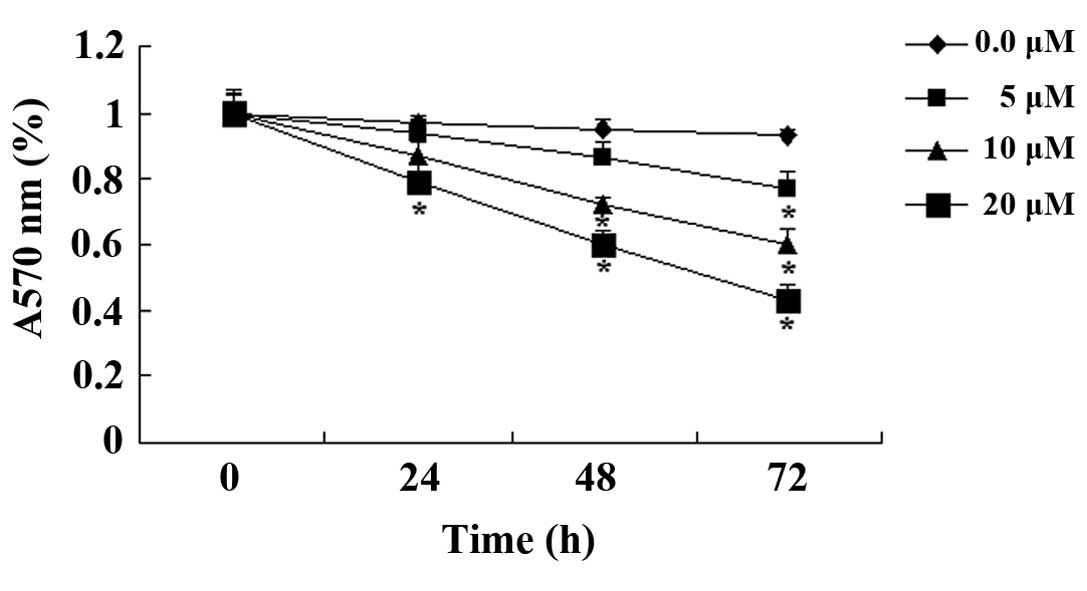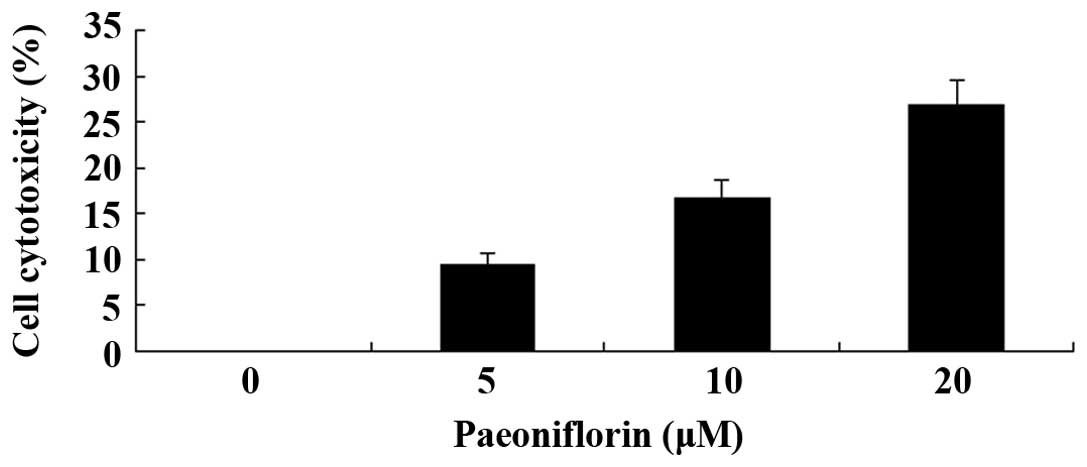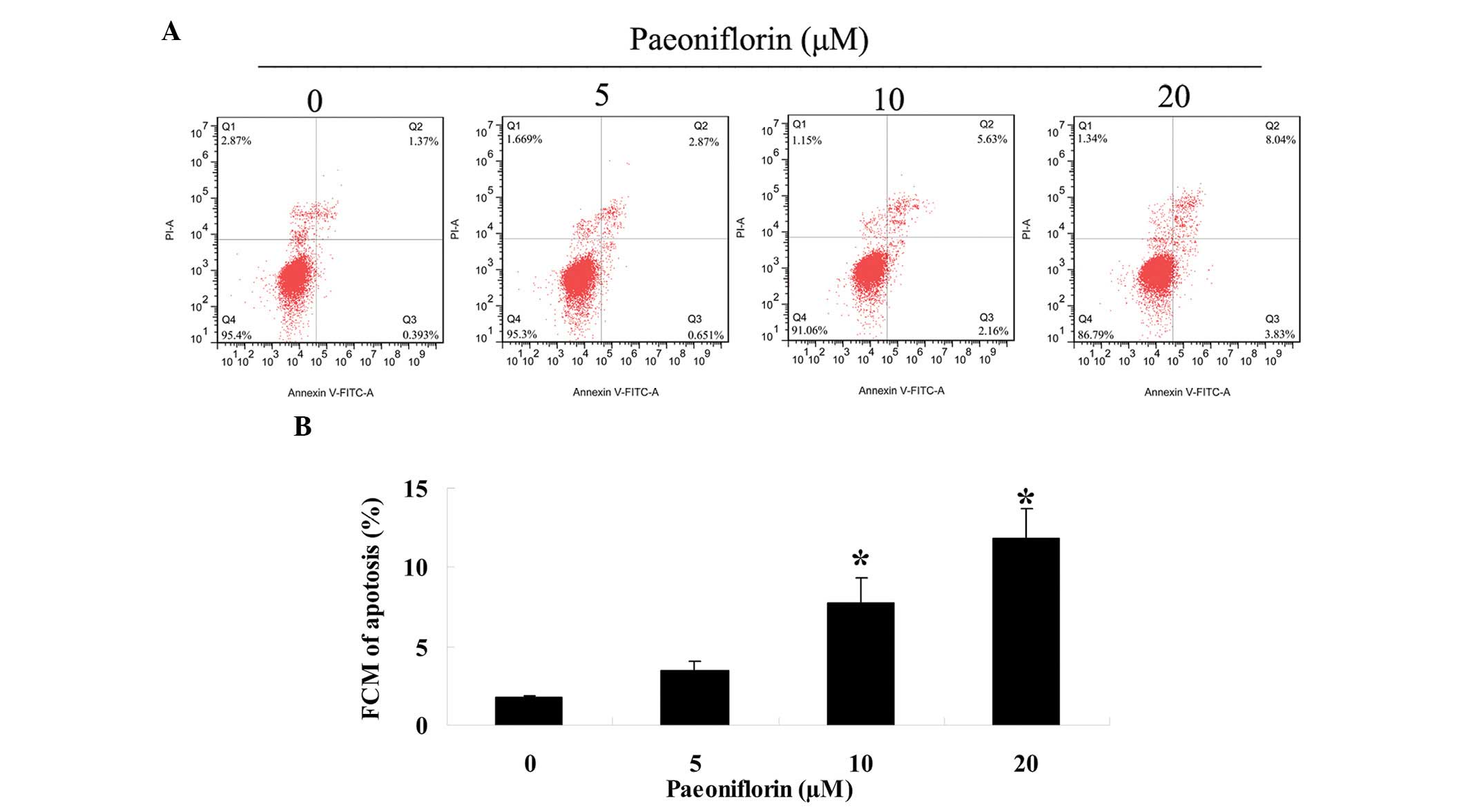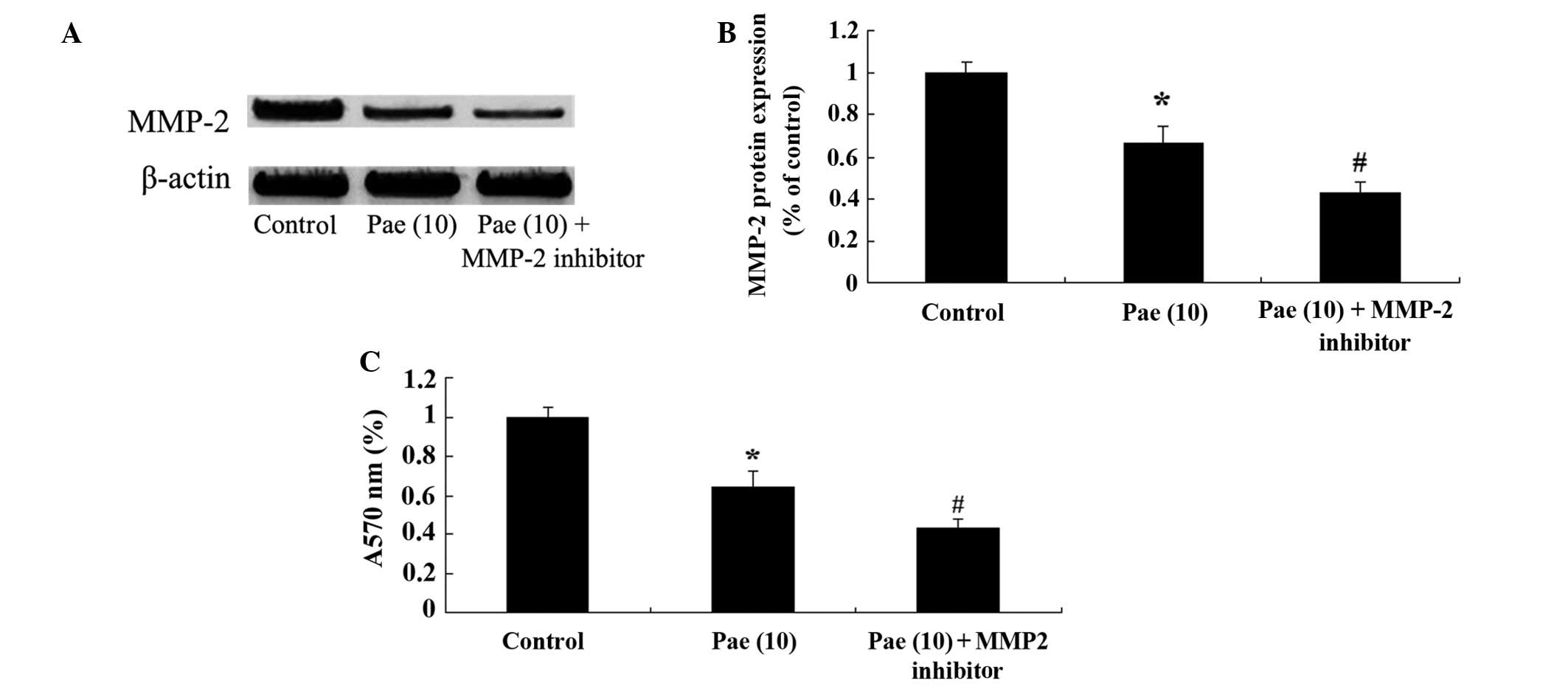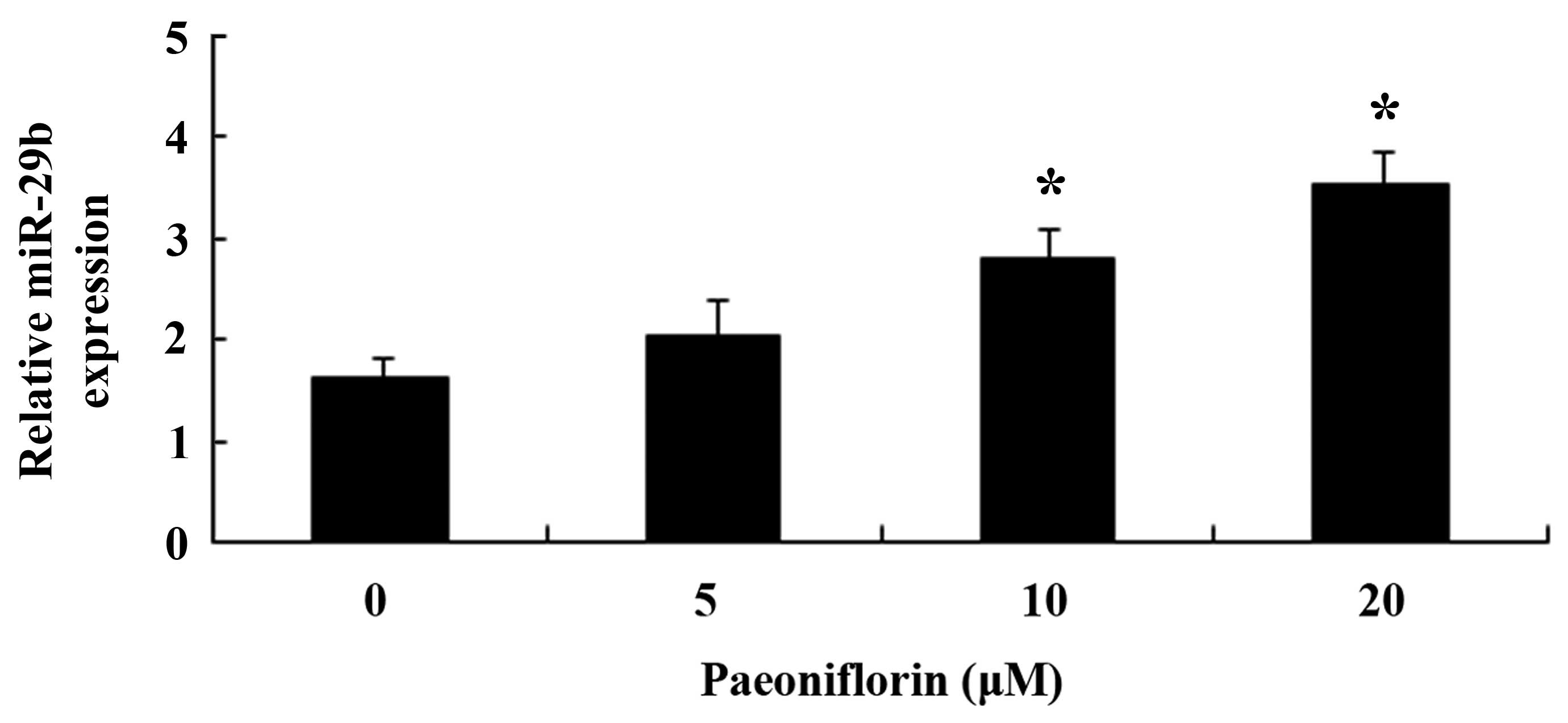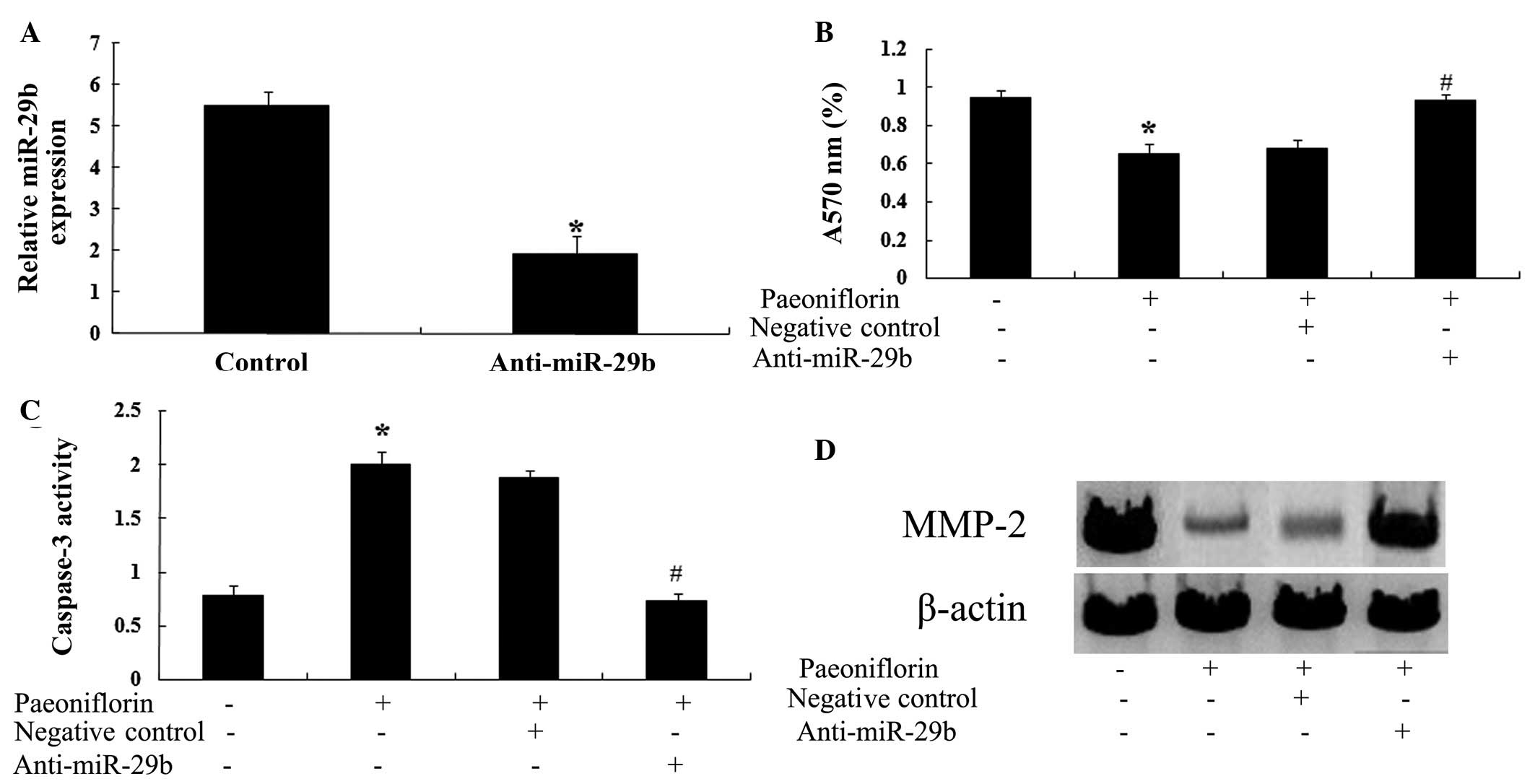|
1
|
Fujisawa M, Seike K, Fukumoto K, Suehara
Y, Fukaya M, Sugihara H, Takeuchi M and Matsue K: Oligoclonal bands
in patients with multiple myeloma: Its emergence per se could not
be translated to improved survival. Cancer Sci. 105:1442–1446.
2014. View Article : Google Scholar : PubMed/NCBI
|
|
2
|
Ma Y, Li Z, Wang Y and Feng J: Brucine
induces the apoptosis of U266 multiple myeloma cells by
phosphorylation of c-Jun. Mol Med Rep. 7:481–484. 2013.
|
|
3
|
Qiao M, Wu D, Carey M, Zhou X and Zhang L:
Multi-scale agent-based multiple myeloma cancer modeling and the
related study of the balance between osteoclasts and osteoblasts.
PLoS One. 10:e01432062015. View Article : Google Scholar : PubMed/NCBI
|
|
4
|
He X, Yang K, Chen P, Liu B, Zhang Y, Wang
F, Guo Z, Liu X, Lou J and Chen H: Arsenic trioxide-based therapy
in relapsed/refractory multiple myeloma patients: A meta-analysis
and systematic review. Onco Targets Ther. 7:1593–1599. 2014.
View Article : Google Scholar : PubMed/NCBI
|
|
5
|
Zhang J, Ai L, Lv T, Jiang X and Liu F:
Asiatic acid, a triterpene, inhibits cell proliferation through
regulating the expression of focal adhesion kinase in multiple
myeloma cells. Oncol Lett. 6:1762–1766. 2013.PubMed/NCBI
|
|
6
|
Garzon R, Calin GA and Croce CM: MicroRNAs
in cancer. Annu Rev Med. 60:167–179. 2009. View Article : Google Scholar : PubMed/NCBI
|
|
7
|
Cao L, Wang H and Wang F:
Amyloid-β-induced matrix metalloproteinase-9 secretion is
associated with retinal pigment epithelial barrier disruption. Int
J Mol Med. 31:1105–1112. 2013.PubMed/NCBI
|
|
8
|
Vacca A, Ribatti D, Presta M, Minischetti
M, Ria R, Albini A, Bussolono F and Dammacco F: Bone marrow
neovascularization, plasma cell angiogenic potential, and matrix
metalloproteinase-2 secretion parallel progression of human
multiple myeloma. Blood. 93:3064–3073. 1999.PubMed/NCBI
|
|
9
|
Zdzisinska B, Walter-Croneck A and
Kandefer-Szerszen M: Matrix metalloproteinases-1 and -2, and tissue
inhibitor of metal-loproteinase-2 production is abnormal in bone
marrow stromal cells of multiple myeloma patients. Leuk Res.
32:1763–1769. 2008. View Article : Google Scholar
|
|
10
|
Bolkun L, Lemancewicz D, Sobolewski K,
Mantur M, Semeniuk J, Kulczynska A, Kloczko J and Dzieciol J: The
evaluation of angiogenesis and matrix metalloproteinase-2 secretion
in bone marrow of multiple myeloma patients before and after the
treatment. Adv Med Sci. 58:118–125. 2013. View Article : Google Scholar : PubMed/NCBI
|
|
11
|
Chen YP, Jin X, Kong M and Li YM: Pattern
of microRNA expression associated with different stages of
alcoholic liver disease in rat models. Mol Med Rep. 10:1195–1204.
2014.PubMed/NCBI
|
|
12
|
Vandenboom Ii TG, Li Y, Philip PA and
Sarkar FH: MicroRNA and cancer: Tiny molecules with major
implications. Curr Genomics. 9:97–109. 2008. View Article : Google Scholar
|
|
13
|
Ru P, Steele R, Newhall P, Phillips NJ,
Toth K and Ray RB: miRNA-29b suppresses prostate cancer metastasis
by regulating epithelial-mesenchymal transition signaling. Mol
Cancer Ther. 11:1166–1173. 2012. View Article : Google Scholar : PubMed/NCBI
|
|
14
|
Zhang YK, Wang H, Leng Y, Li ZL, Yang YF,
Xiao FJ, Li QF, Chen XQ and Wang LS: Overexpression of microRNA-29b
induces apoptosis of multiple myeloma cells through down regulating
Mcl-1. Biochem Biophys Res Commun. 414:233–239. 2011. View Article : Google Scholar : PubMed/NCBI
|
|
15
|
Hu ZY, Xu L, Yan R, Huang Y, Liu G, Zhou
WX and Zhang YX: Advance in studies on effect of paeoniflorin on
nervous system. Zhongguo Zhong Yao Za Zhi. 38:297–301. 2013.In
Chinese. PubMed/NCBI
|
|
16
|
Fang S, Zhu W, Zhang Y, Shu Y and Liu P:
Paeoniflorin modulates multidrug resistance of a human gastric
cancer cell line via the inhibition of NF-κB activation. Mol Med
Rep. 5:351–356. 2012.
|
|
17
|
Zhang L and Zhang S: Modulating Bcl-2
family proteins and caspase-3 in induction of apoptosis by
paeoniflorin in human cervical cancer cells. Phytother Res.
25:1551–1557. 2011. View
Article : Google Scholar : PubMed/NCBI
|
|
18
|
Livak KJ and Schmittgen TD: Analysis of
relative gene expression data using real-time quantitative PCR and
the 2(-Delta Delta C(T)) method. Methods. 25:402–408. 2001.
View Article : Google Scholar
|
|
19
|
Chen YF, Wu KJ and Wood WG: Paeonia
lactiflora extract attenuating cerebral ischemia and arterial
intimal hyperplasia is mediated by paeoniflorin via modulation of
VSMC migration and Ras/MEK/ERK signaling pathway. Evid Based
Complement Alternat Med. 2013:4824282013.PubMed/NCBI
|
|
20
|
Wang XS, Shi Q, Williams LA, Shah ND,
Mendoza TR, Cohen EN, Reuben JM, Cleeland CS and Orlowski RZ:
Longitudinal analysis of patient-reported symptoms post-autologous
stem cell transplant and their relationship to inflammation in
patients with multiple myeloma. Leuk Lymphoma. 56:1335–1341. 2015.
View Article : Google Scholar
|
|
21
|
Trepel M, Martens V, Doll C, Rahlff J,
Gösch B, Loges S and Binder M: Phenotypic detection of clonotypic B
cells in multiple myeloma by specific immunoglobulin ligands
reveals their rarity in multiple myeloma. PLoS One. 7:e319982012.
View Article : Google Scholar : PubMed/NCBI
|
|
22
|
Hu S, Sun W, Wei W, Wang D, Jin J, Wu J,
Chen J, Wu H and Wang Q: Involvement of the prostaglandin E
receptor EP2 in paeoniflorin-induced human hepatoma cell apoptosis.
Anticancer Drugs. 24:140–149. 2013. View Article : Google Scholar
|
|
23
|
Hung JY, Yang CJ, Tsai YM, Huang HW and
Huang MS: Anti-proliferative activity of paeoniflorin is through
cell cycle arrest and the Fas/Fas ligand-mediated apoptotic pathway
in human non-small cell lung cancer A549 cells. Clin Exp Pharmacol
Physiol. 35:141–147. 2008. View Article : Google Scholar
|
|
24
|
Yang JL, Lin JH, Weng SW, Chen JC, Yang
JS, Amagaya S, Funayana S, Wood WG, Kuo CL and Chung JG: Crude
extract of Euphorbia formosana inhibits the migration and invasion
of DU145 human prostate cancer cells: The role of matrix
metalloproteinase-2/9 inhibition via the MAPK signaling pathway.
Mol Med Rep. 7:1403–1408. 2013.PubMed/NCBI
|
|
25
|
Han X, Jin D, Zheng G, Luo Y and Cai Z:
Astrocytoma development following complete multiple myeloma
remission in a 49-year-old patient: A case report. Exp Ther Med.
6:509–512. 2013.PubMed/NCBI
|
|
26
|
Harford-Wright E, Lewis KM, Ghabriel MN
and Vink R: Treatment with the NK1 antagonist emend reduces blood
brain barrier dysfunction and edema formation in an experimental
model of brain tumors. PLoS One. 9:e970022014. View Article : Google Scholar : PubMed/NCBI
|
|
27
|
Yang JH, Wu MY, Chen MJ, Chen SU, Yang YS
and Ho HN: Increased matrix metalloproteinase-2 and tissue
inhibitor of metalloproteinase-1 secretion but unaffected
invasiveness of endometrial stromal cells in adenomyosis. Fertil
Steril. 91(5 Suppl): 2193–2198. 2009. View Article : Google Scholar
|
|
28
|
Zhang L, Dong Y, Sun Y, Chen T and Xu Q:
Role of four major components in the effect of Si-Ni-San, a
traditional Chinese prescription, against contact sensitivity in
mice. J Pharm Pharmacol. 58:1257–1264. 2006. View Article : Google Scholar : PubMed/NCBI
|
|
29
|
Kagiya T and Nakamura S: Expression
profiling of microRNAs in RAW264.7 cells treated with a combination
of tumor necrosis factor alpha and RANKL during osteoclast
differentiation. J Periodontal Res. 48:373–385. 2013. View Article : Google Scholar
|
|
30
|
Sugio A, Iwasaki M, Habata S, Mariya T,
Suzuki M, Osogami H, Tamate M, Tanaka R and Saito T: BAG3
upregulates Mcl-1 through downregulation of miR-29b to induce
anticancer drug resistance in ovarian cancer. Gynecol Oncol.
134:615–623. 2014. View Article : Google Scholar : PubMed/NCBI
|
|
31
|
Rossi M, Pitari MR, Amodio N, Di Martino
MT, Conforti F, Leone E, Botta C, Paolino FM, Del Giudice T,
Iuliano E, et al: miR-29b negatively regulates human osteoclastic
cell differentiation and function: Implications for the treatment
of multiple myeloma-related bone disease. J Cell Physiol.
228:1506–1515. 2013. View Article : Google Scholar
|















